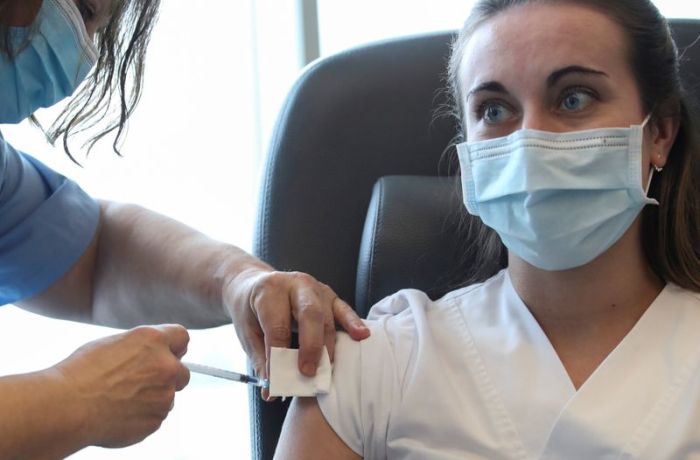(Reuters) – Eli Lilly and Co will move a new COVID-19 antibody therapy to human trials targeting a coronavirus variant that was first found in South Africa, the U.S. drugmaker said on Tuesday.
The company on Tuesday also presented early data from a late-stage trial showing that its combination therapy of two antibodies, bamlanivimab and etesevimab, helped cut the risk of hospitalization and death in COVID-19 patients by 70%.
Bamlanivimab was authorized in November for emergency use in high-risk patients in the United States with mild to moderate COVID-19. Lilly has requested emergency use authorization for the combination as well.
The new antibody targeting the South Africa variant is swiftly moving toward human testing, according to a company executive. How much data is needed each time a new antibody is made remains unresolved, he said.
There has been considerable concern in recent weeks after highly transmissible new variants of the coronavirus were found in the United Kingdom and South Africa, raising alarm that current drugs and vaccines might be rendered less effective.
“According to all of the publicly available surveillance… bamlanivimab alone is effective, or predicted to be effective against more than 99% of all strains that we see in the United States today. And bamlanivimab plus etesevimab should take care of the rest of them,” Chief Scientific Officer Dan Skovronsky said.
“That includes the U.K. variant, which is very highly transmissible,” Skovronsky said.
Data from over 1,000 participants in a late-stage study testing the combination showed 11 COVID-19-related hospitalizations and deaths in patients treated with the therapy, compared with 36 in those on placebo, representing a 70% risk reduction, the company said.
Antibody therapies from Lilly and rival Regeneron have so far seen lackluster demand as they require quick diagnosis and the isolation of infectious patients.
Lilly said it was working with the U.S. health regulator to potentially reduce infusion time for its antibody therapies to be as short as 16 minutes from the currently authorized time of 1 hour to simplify their use.
(Reporting by Manojna Maddipatla in Bengaluru; Editing by Anil D’Silva and Sriraj Kalluvila)

























